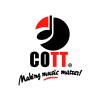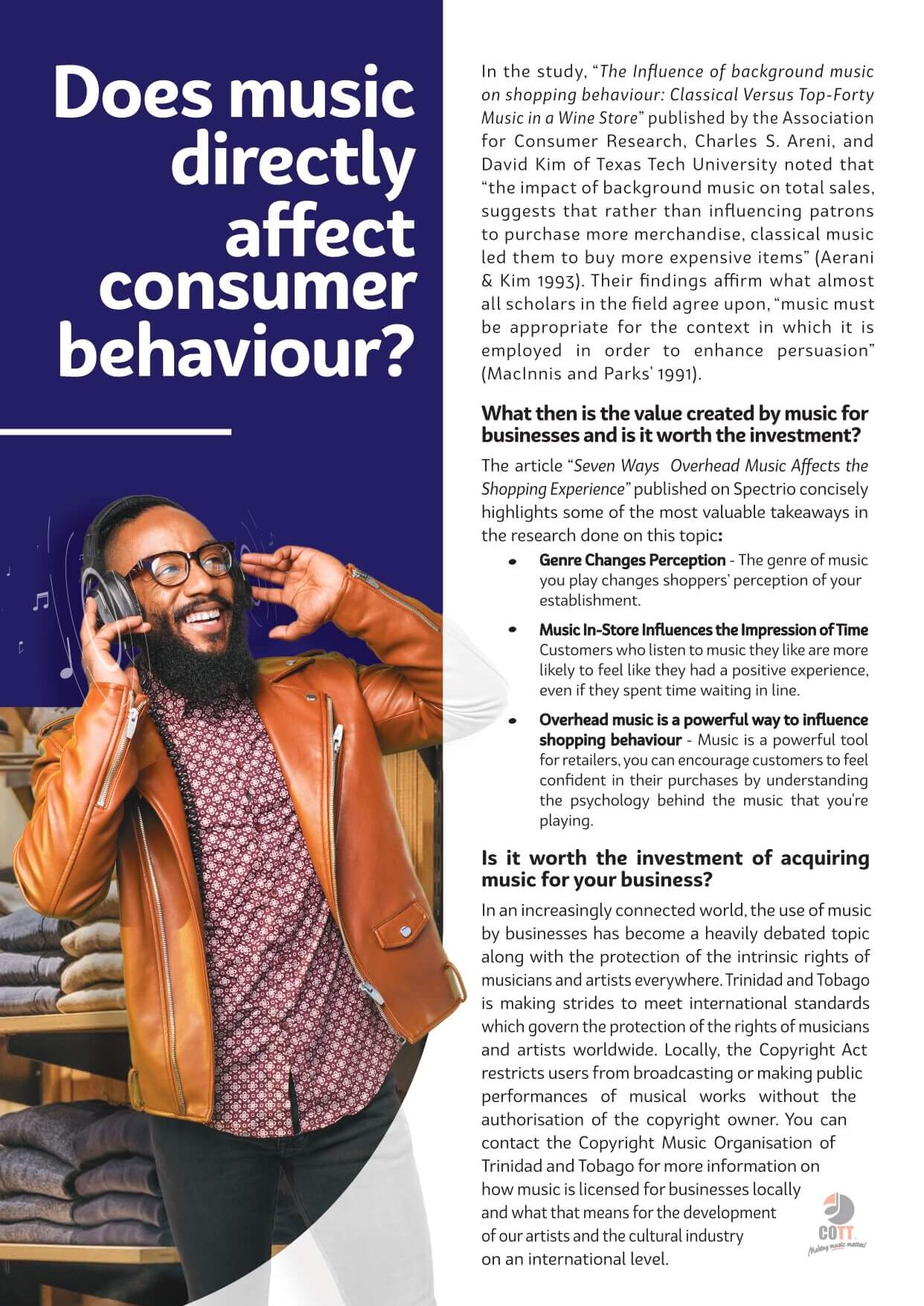Understanding Copyright
HOW COPYRIGHT WORKS
COPYRIGHTING YOUR WORK
There is no official method to copyrighting a musical composition in Trinidad and Tobago. However, evidence of creation and ownership can be achieved by mailing a physical copy of the work to yourself or store it with your bank or lodge it with an attorney. The work must be time stamped and remain sealed for this to provide any legal proof.
REGISTERING YOUR WORK
Registration is not required to obtain copyright protection. However, to ensure that you receive your royalties when your work is used, you must register your work with COTT. This can be done through our Members Portal, or you can complete and submit your Notification of Work [NOW] form online.
GENERAL TERMS AND THEIR MEANINGS
COMPOSER
Creates music to be played or performed by musicians.
AUTHOR
The natural person who creates the lyrics.
COLLECTIVE MANAGEMENT ORGANISATION (CMO)
A collective management organisation (CMO) is appointed by copyright holders to manage the rights in their copyright works. A CMO administers the licensing of rights, collection of royalties and enforcement of rights on behalf of the copyright holders.
PUBLISHER
Publishers are assigned copyright in a musical work by a composer/author. They are responsible for ensuring songwriters and composers receive payment when their compositions are used commercially. They pitch the works that they represent for use in films and advertising [Synchronisation], as well as other uses
SUCCESSORS
Are beneficiaries of deceased members and include spouse, child, relative, next of kin, or beneficiary under the will of a deceased member. Copyright exists for 50 years after the death of a composer or author. Their beneficiaries are entitled to receive royalties if the musical works are in active use.
PERFORMING RIGHTS
REPRODUCTION / MECHANICAL RIGHTS
SYNCHRONISATION
Occurs when music is paired with some other visual media for use in a film, TV show or used to advertise a product or event.
SHARE SPLITS
Determines how the royalties will be paid to all interested parties registered on a work. Share splits should be worked out song by song as it will not be the same for all songs.
When you have co-authored a song, you should ensure that there is a written agreement. The shares in a song are considered as a single unit and must be equal to 100%. Both Performance and Mechanical royalties shared between songwriters, composers, and publishers, must total 100%.
When you register a musical work with us, you need to add the agreed share splits for both performance and mechanical royalties this will ensure that the work is fully registered.
It is up to the you and the other interested parties to decide and agree the share splits for your work as you collectively see fit. We don’t advise on share splits, but distribute royalties based on the share splits as they appear on a work registration.
Contractual variations are subject to the overriding rule that the share allocable to the writer or writers of a work shall not be less than 50%.
Original Composition [no Publisher assigned]: | |||
| Composer(s) | Author(s) | Publisher(s) |
| 50% | 50% | – |
| 100% | – | – |
| – | 100% | – |
Original Composition [Publisher assigned]: | |||
| Composer(s) | Author(s) | Publisher(s) |
| 25% | 25% | 50% |
| 50% | – | 50% |
| – | 50% | 50% |
| 25% | 50% | 25% |
| 50% | 25% | 25% |
If COTT is notified after the initial registration that rights have been reassigned to include a Publisher, COTT will credit the Publisher with the appropriate share for performances beginning with the quarter in which such notice is received. No Retroactive Adjustments Will Be Made.
RECIPROCAL AGREEMENTS
These are agreements that exists between CMOs in different territories. They give permission for the local CMO to issue blanket licences for the use of music owned by rightsholders in other territories.
Through COTT’s direct and indirect reciprocal representation agreements with international affiliates, COTT represents virtually the worldwide repertoire of copyright music.

